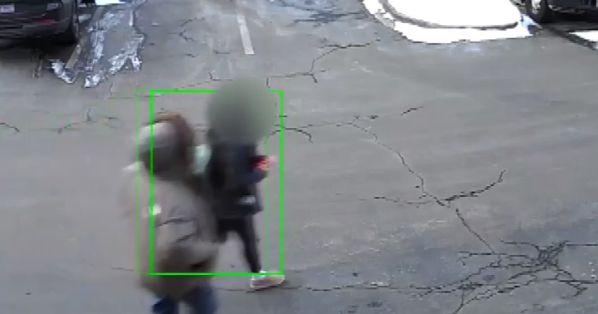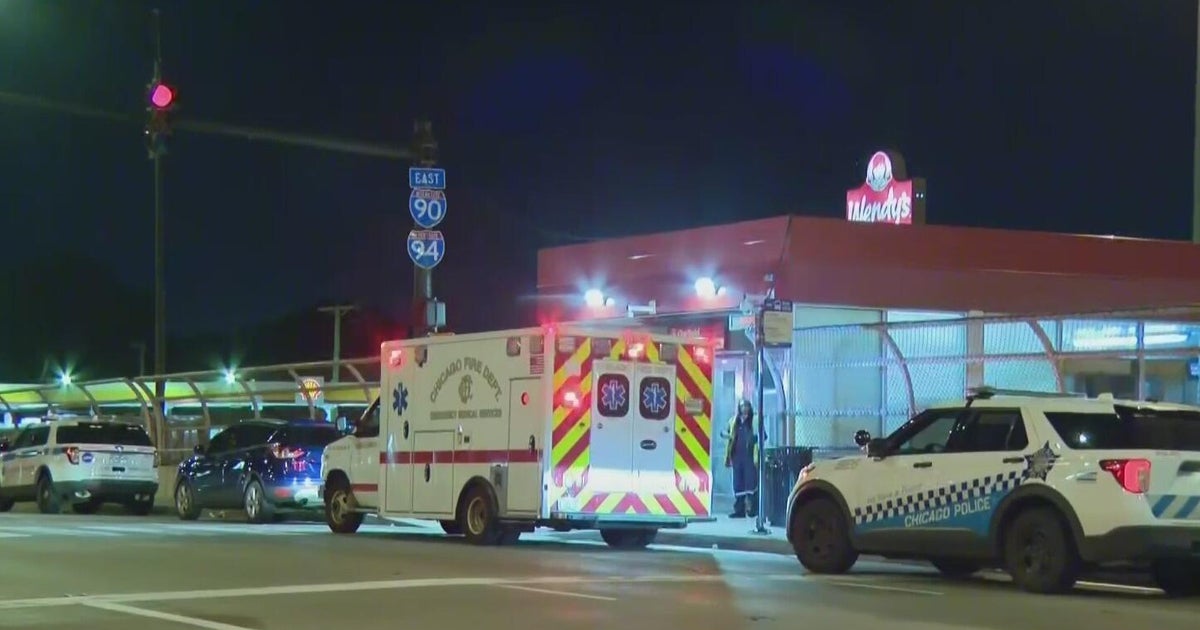Transcript: Senator Rob Portman on "Face the Nation," March 21, 2021
The following is a transcript of an interview with Ohio Republican Senator Rob Portman that aired Sunday, March 21, 2021, on "Face the Nation."
MARGARET BRENNAN: The Biden administration is faced with a growing crisis at the southern border as the number of unaccompanied migrant children in custody has now surpassed 15,000. Ohio Republican Senator Rob Portman toured several border facilities in Texas last week. He joins us from Cincinnati. Good morning to you, Senator.
SENATOR ROB PORTMAN: Good morning, MARGARET. Thanks for having me on.
MARGARET BRENNAN: You just heard the numbers. You heard your Democratic colleague, Senator Duckworth, lay this at the feet of the last president. The problem right now is with this current administration. Their message this morning is a clear, do not come. Will those words change what is happening?
SEN. PORTMAN: No. I mean, people are going to listen to actions and watch actions and not listen to words, and- and I spoke to a number of migrants. I spoke to single individuals who are coming over at night, men who told me that they'd heard what President Biden said and they were coming anyway because they could make a lot more, 10 times more in the United States. I talked to children and talked to them about the messaging. And what they're hearing is that you can now come into the United States, which you can as- as a kid. And so they're going to keep coming. And the- the problem here is that the Biden administration on day one made about a half-dozen changes and since then have made several more that encourage more people to come to the border. And they didn't put anything in place to deal with it, either another policy to discourage people from coming, which the president says he wants to do. Or to put the preparations in place, including the shelters and the holding facilities that are- that have been so criticized. And I saw some of them the other day. Kids are overcrowded. They're in situations you would never want your kid to be in. And so it's irresponsible. And, you know, they say, well, it's more humane. I don't think it's humane to encourage kids to make this treacherous journey north and then have to live in these kind of conditions,--
MARGARET BRENNAN: So--
SEN. PORTMAN: --so we need to change course.
MARGARET BRENNAN: Specifically on that issue of children. You know, the- the Biden administration has kept the Trump administration policy, that- that Title 42, of during the pandemic, pushing people back across the border without due process because of this pandemic. But they are allowing children to stay. Are you saying children should be expelled even if they're trying to seek asylum?
SEN. PORTMAN: Well, it's not so much a matter of expelling kids. It's a matter of telling them that they're not going to be able to come across the border during the public health crisis and yes I think Title 42 ought to stay in--
MARGARET BRENNAN: Well, they are in US custody because they're not being expelled.
SEN. PORTMAN: Well, exactly. So- so now it's a different situation. But what I'm saying is that we ought to put in place the provisions that were in place previously while we prepare ourselves. I mean, I think there are five things that we- we can do and should do right away. One is help the Border Patrol, they're overwhelmed. Finish the small parts of the wall that haven't been completed because it's silly. You've got openings in the wall that's making the Border Patrol job impossible. Provide the technology for them, even more important than- than the wall. Second, stop the magnet of- of work by putting a mandatory E-Verify system in place. And then third, let's deal with this asylum issue in a- in a much more logical way. Let's have rapid adjudication at the border. This was a pilot program started in the Trump administration. It was stopped. Let's put that back in place. Let's put the resources into that so people can find out right away. Do they- do they qualify or not? Right now, as you know, it's four or five, six years before they know. Meanwhile, they're living in the United States. We know that only about half of them even show up for their court cases. No wonder they're in the United States for- for several years. And at the end of the day, only 15% of them qualify. So it's- it's a bad situation. Finally, in terms of the third country agreements--
MARGARET BRENNAN: Yeah.
SEN PORTMAN: --that the Biden administration entered right away, let's allow these- these kids to seek asylum and families and individuals in their country of origin, but also in third countries. So as an example, if you're in Honduras and you're coming up, you can apply in Guatemala--
MARGARET BRENNAN: Right
SEN. PORTMAN: --or you can apply in Mexico. That makes a lot more sense. So encouraging these kids to come is not a humane thing, and it's certainly overwhelming our system. So--
MARGARET BRENNAN: Well. I want to-
SEN. PORTMAN: --there's a much better way to do this.
MARGARET BRENNAN: Specifically, let me ask you about one thing in particular the White House is asking for. They want four billion in aid over the next four years, a billion a year for Central America to help the countries of origin basically keep their people within their own borders. You have oversight. Is that a reasonable number?
SEN. PORTMAN: Probably. I mean, let's face it, MARGARET, we've spent $3.6 billion, so roughly that amount, in the last five years in those three countries in the Northern Triangle, alone, so El Salvador, Guatemala, Honduras. There's a lot of corruption down there. They've also had issues and natural disasters, including the hurricanes. So it hasn't made much of a difference in terms of the poverty rates. It's a little better. And of course, we should work on that. Everything I talked about earlier, were sort of to stop the pull-factors because there are obviously millions of people around the world who would love to come, so you need to reduce the pull-factors. On the push-factors, I'm for that, but it's going to take many years, some say a decade to make any substantial difference. So let's begin the process. But let's be sure we do two things. One, let's tie that aid to them helping us in terms of the asylum process and working through this issue that otherwise overwhelms our system. And second, let's tie the aid to actually dealing with the corruption and make sure that there- there is transparency, there- there is a- an adherence to the rule of law so that we can actually make the fundamental changes in these countries to be able to help those people rather than just sending--
MARGARET BRENNAN: OK.
SEN. PORTMAN: --more money down as we- as we have been doing.
MARGARET BRENNAN: Very quickly, will you press DHS to give journalists access, yes or no?
SEN. PORTMAN: Absolutely. I mean, this should be transparent.
MARGARET BRENNAN: Thank you.
SEN. PORTMAN: I mean, it's amazing to me how little my constituents know about what's going on down along the border. And--
MARGARET BRENNAN: Yeah.
SEN. PORTMAN: --it is a situation spiraling out of control.
MARGARET BRENNAN: Thank you.
SEN. PORTMAN: As the Rio Grande Valley sector chief--
MARGARET BRENNAN: Yeah.
SEN. PORTMAN: --just said in- in a tweet yesterday, there is no end in sight. I mean, this is not fair to the Border Patrol and others within our immigration system trying to--
MARGARET BRENNAN: Right.
SEN. PORTMAN: --deal with it. And there are things that can and should be done to deal with it. And I hope--
MARGARET BRENNAN: All right.
SEN. PORTMAN: --the administration will do that.
MARGARET BRENNAN: Senator Portman, I appreciate your time this morning. Thank you. We'll be right back. Stay with us.



